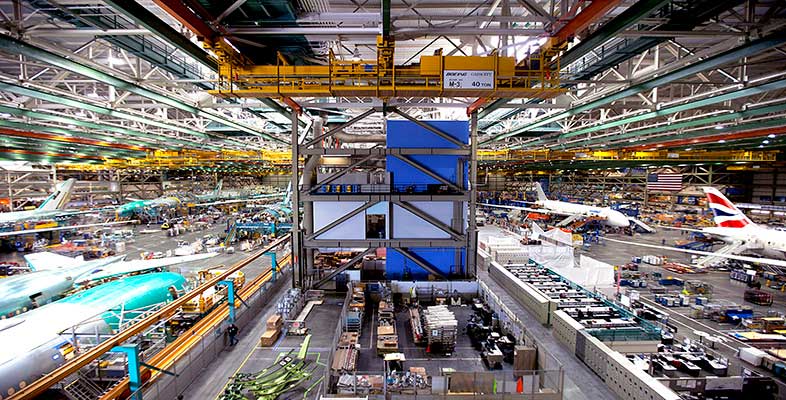2.3 The role of the operations manager
Some people (especially those professionally involved in operations management!) argue that operations management involves everything an organisation does. In this sense, every manager is an operations manager, since all managers are responsible for contributing to the activities required to create and deliver an organisation's goods or services. However, others argue that this definition is too wide, and that the operations function is about producing the right amount of a good or service, at the right time, of the right quality and at the right cost to meet customer requirements.
Activity 2
What do you think a typical operations manager does? Take a minute or so to consider.
Discussion
A stereotypical example of an operations manager would be a plant manager in charge of a factory, such as an automobile assembly plant. But other managers who work in the factory – quality managers, production and inventory control managers, and line supervisors – can also be considered to be working in operations management. In service industries, managers in hotels, restaurants, banks and stores are operations managers. In the not-for-profit sector, the manager of a nursing home or day centre for older people is an operations manager, as is the manager of a local government tax-collection office and the manager of a charity shop staffed entirely by volunteers.
So operations managers are responsible for managing activities that are part of the production of goods and services. Their direct responsibilities include managing both the operations process, embracing design, planning, control, performance improvement, and operations strategy. Their indirect responsibilities include interacting with those managers in other functional areas within the organisation whose roles have an impact on operations. Such areas include marketing, finance, accounting, personnel and engineering.
Operations managers' responsibilities include:
Human resource management – the people employed by an organisation either work directly to create a good or service or provide support to those who do. People and the way they are managed are a key resource of all organisations.
Asset management – an organisation's buildings, facilities, equipment and stock are directly involved in or support the operations function.
Cost management – most of the costs of producing goods or services are directly related to the costs of acquiring resources, transforming them or delivering them to customers. For many organisations in the private sector, driving down costs through efficient operations management gives them a critical competitive edge. For organisations in the not-for-profit sector, the ability to manage costs is no less important.
Decision making is a central role of all operations managers. Decisions need to be made in:
designing the operations system
managing the operations system
improving the operations system.
The five main kinds of decision in each of these relate to:
the processes by which goods and services are produced
the quality of goods or services
the quantity of goods or services (the capacity of operations)
the stock of materials (inventory) needed to produce goods or services
the management of human resources.
Activity 3
Use the matrix below to analyse your role as an operations manager. In as many of the cells in the matrix as you can, jot down an example of a decision you have made in the last month.
| A Designing the operations system | B Managing the operations system | C Improving the operations system | |
|---|---|---|---|
| 1 Processes | |||
| 2 Quality | |||
| 3 Capacity | |||
| 4 Inventory | |||
| 5 Human resources |
Discussion
You will almost certainly have left some of the cells in the matrix blank. For example, you may not have been involved (at least in the last month) in designing the operations system, so you may not have made any decisions that belong to the cells in Column A, though you will almost certainly have found some examples to put in Column B and perhaps in Column C also. Similarly, if your area of work does not involve any stocks of materials, you will not have found any for cells in Row 4 (Inventory). However, it is likely that you will have been able to identify decisions you have made that fall in at least a third of the cells of this matrix. If so, you are fulfilling many of the roles of an operations manager.
